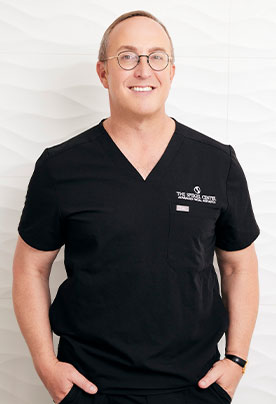
When many of us think about Botox, we think of a product that our dermatologists use to reduce the appearance of fine lines and wrinkles on our faces. However, as one study suggests, Botox may be even more valuable than we could have imagined.
The Problem
Anywhere from 10% to 50% of people who undergo bypass surgery develop arrhythmia, or irregular heartbeat, at some point during or after the procedure. Bypass surgery is designed to provide a new path for blood flow due to blocked blood vessels in the heart, and up until recently, arrhythmia was simply a risk that patients had to take. This complication increases the time patients spend in intensive care units and makes recovery a more difficult and dangerous process, and it even lowers long-term survival rates.
The Need for Research
Dr. Jonathan Steinburg, a professor and director of the arrhythmia institute at the University of Rochester, recently conducted the study to elaborate on findings in animals. In some mammals, Botox injections changed the chemical signals that regulate the beat patterns by directly impacting nerves in the heart. When used to release wrinkles, Botox acts in much the same way by affecting nerves in the area and essentially paralyzing certain muscle groups temporarily.
The Study
Dr. Steinburg collaborated with Russian doctors to put Botox to the test on human patients. More than 60 patients scheduled for bypass surgery were included in the study, and while half of them randomly received injections of Botox directly into their hearts, the other half received only a saline placebo. Doctors not only looked at the patients’ reactions during and immediately after the surgery, but also at their long-term recovery and prognosis.
The Findings
Steinburg’s recent report in Circulation: Arrhythmia and Electrophysiology shows that direct injections of Botox into the heart during bypass surgery can help to regulate the heartbeat and prevent some of the greatest risks associated with bypass surgery. The study found that 30% of the study group who received placebo saline injections developed arrhythmia while only 7% of those who received Botox injections developed the complication. A year later, no one in the Botox group showed any abnormalities, but 27% of those in the saline placebo group did.
The Future of Botox in Heart Surgery
Although the use of Botox in heart surgery requires more study and testing, Dr. Steinburg says he is confident that this procedure will become a staple among cardiologists. What’s more, he feels that Botox may also help treat other causes and case of arrhythmias, too. He goes on to note that larger-scale studies are in the works, and while it may be some time before patients scheduled for bypass will receive Botox injections, the outlook is encouraging when it comes to reducing recovery time and preventing long-term complications.
As you can see, Botox’s overall use in medicine is still not yet completely understood. Although it has FDA approval for dermatological use, it is not yet approved for heart surgery. Hopefully, the next few years will bring additional studies and even more promising results.





